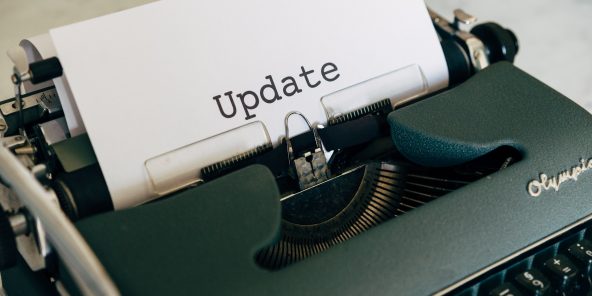Government Measures and Covid-19

We have summarised the measures the UK Government has implemented to date in an effort to support businesses through national emergency that is Covid-19.
The guidance below is based on our understanding of the preliminary guidance from Government. We will update this document as further information becomes available – last updated Monday 27 March 2020.
Guidance for Employers
Coronavirus Job Retention Scheme
Under the new Coronavirus Job Retention Scheme all UK employers will be able to access support to continue paying part of their employees’ salary for those employees that would otherwise have been laid off during this crisis.
To be eligible:
- You and your employee must both agree to the period of furlough and you must inform your employee in writing.
- An employee must have been on the payroll at 28 February 2020
- The minimum period that can be claimed for is 3 weeks and the maximum is 3 months, so the minimum period of furlough is 3 weeks. The period for the scheme may be extended.
- The grant is only for 80% of the employees’ wages, up to £2,500 per month, and it is at your discretion if you wish to pay any additional wages.
- Income tax, NIC and other deductions will still be deductible.
Full details on how to calculate the eligible wages, including advice for employees who are currently on sick leave or maternity leave can be found on the government website.
https://www.nibusinessinfo.co.uk/content/coronavirus-claim-wage-costs-through-coronavirus-job-retention-scheme
HMRC are working urgently to set up a system for reimbursement that should be available by the end of April. Existing systems are not set up to facilitate payments to employers. Reimbursements, however, may be back-dated to 1 March.
Statutory Sick Pay (SSP)
Small Employers, those with fewer than 250 employees are now able to reclaim up to 2 weeks’ Statutory Sick Pay (SSP) per employee for sickness absence due to either isolation measures or illness due to COVID-19.
Please note the number of employees will be determined by the number of people the business employed as of 28 February 2020. Employers should maintain records of staff absences and payments of SSP, but employees will not need to provide a doctor’s note.
The details of the mechanism for repayment of SSP have yet to be released.
Guidance for Businesses and the Self Employed
The Self Employed Income Support Scheme
The Self Employed Income Support Scheme offers financial assistance to the self-employed who are adversely affected by the Covid-19outbreak.
- The main points are as follows:
- HMRC will provide grants of 80% of monthly income for the self-employed who are adversely affected by Covid-19.
- The amount available will be based on the average monthly profits over the last 3 years.
- Support will be capped at £2500 per month and is taxable. The scheme is initially available for a period of 3 months.
- The scheme is available to those who are self-employed or in a partnership with trading profits up to £50,000 per annum whose majority of income comes from self-employment.
- You can claim the grant and still continue to work.
- HMRC will contact those who qualify and you will then need to apply. Money will be payable in one payment and should be accessible by June 2020. You cannot apply at this stage.
- To be eligible you must have submitted your 2018/2019 Tax Return and intent to continue to trade in 2020/2021
Full details and updates are available at https://www.nibusinessinfo.co.uk/content/coronavirus-self-employed-income-support-scheme-seiss
VAT Deferral Scheme
VAT payments will be deferred for all UK businesses for three months that would normally arise during the period from 20 March 2020 to 30 June 2020.
This is an automatic deferral with no applications required. Businesses will simply not need to make a VAT payment during this period and should cancel their direct debit instruction to the HM Revenue and customs VAT office. Businesses will be given until the end of the 2020/21 tax year to pay any liabilities that have accumulated during the deferral period.
Self-Employed Income Tax Deferral
If you are a self-employed income tax payer, the payments on account normally due on 31 July 2020 will automatically be deferred until January 2021.This is an automatic offer with no application required No penalties or interest for late payment will be charged in this deferral period.
HMRC have also scaled up their Time to Pay offer to all firms and individuals who are in temporary financial distress as a result of Covid-19 and have outstanding tax liabilities. These arrangements are agreed on a case-by-case basis and are tailored to individual circumstances and liabilities.
Separately, the government has confirmed that it will be cancelling penalties and interest where you have administrative difficulties. HMRC has a dedicated helpline to assist (0800 0159559).
Property Rates Commercial
The NI Executive announced an emergency £100m rates package to assist Northern Ireland ratepayers impacted by COVID-19.
For businesses, there will be a 3-month holiday for all business ratepayers (excluding public sector and utilities). This means that no rates will be charged for April, May and June 2020 and amounts to a 25% discount on the annual rate bill for business ratepayers.
Grant Scheme
The grant scheme announced by the Northern Ireland Executive will come in two parts:
- an immediate grant of £10,000 will be provided to all small businesses who are eligible for the Small Business Rate Relief Scheme; that is all businesses with a Rateable Net Annual Value (NAV) up to £15,000; and
- an immediate grant of £25,000 will be provided to companies in the retail, tourism and hospitality sectors with a NAV between £15,000 and £51,000.
The schemes will be managed by the Department for the Economy and Land & Property Services.
Businesses which qualify for the £10,000 Coronavirus Support Grant who currently pay their rates by direct debit should receive their payment automatically.
The online application is now open for other businesses whose details are not held.
https://www.covid-19smallbusinessgrants.economy-ni.gov.uk/
Details on how to claim the larger grant of £25,000 are yet to be announced.
Coronavirus Business Interruption Loan Scheme
A new temporary Coronavirus Business Interruption Loan Scheme delivered by the British Business Bank through participating providers. It is due to become available in week commencing 23 March 2020 to Small and Medium sized enterprises.
The scheme provides the lender with a government-backed guarantee against 80% of the loan facility. Note the guarantee is in favour of the lender the borrower always remains 100% liable for the debt.
The Government will also cover the first 12 months of charges and interest payments, so businesses will benefit from lower initial repayments. The business remains liable for repayments of the capital. The maximum value of a facility provided under the scheme will be £5 million pounds.
Products supported:
- term facilities;
- overdrafts;
- invoice finance facilities; and
- asset finance facilities.
Full eligibility criteria will be published shortly; our current understanding is that the business must:
- be UK based, with turnover of no more than £45 million per annum;
- operate within an eligible industrial sector;
- have not received over £200,000 of state aid over the previous 2 years; and
- have a sound borrowing proposal.
Finance terms are from three months up to six years for term loans and asset finance, and up to three years for overdrafts and invoice finance.
To apply for this facility, businesses should in the first instance should approach their own provider alternatively they may wish to consider approaching a participating lender to discuss their borrowing needs. Link below:
https://www.british-business-bank.co.uk/ourpartners/coronavirus-business-interruption-loan-scheme-cbils/accredited-lenders/
Universal Credit and Working Tax Credit
The universal credit allowance and working tax credits have been increased by £1,000 for the next 12 months.
Those who are self-employed will also be able to apply for a full Universal Credit at a rate equivalent to statutory sick pay, with the suspension of the minimum income floor. However, this is not without criticism as the UK statutory sick pay scheme at just £92 per week, is one of the lowest in Europe.
The Chancellor also pledged £1bn to help cover 30% of house rental costs by increasing the housing benefit and Universal Credit.
Other Information
Property Rates Domestic
For domestic ratepayers, their rates bills (which were due to be issued in April 2020) will now not be issued until June 2020. Ratepayers can still choose to pay their bill in monthly instalments between June 2020 and March 2021, with monthly direct debit plans automatically updated.
We will continue to closely monitor the evolving situation regarding COVID-19 and will issue further updated guidance for businesses when received from Government or HMRC.
You may also find the following links helpful:
NI business information Coronavirus Employer and business questions FAQ https://www.nibusinessinfo.co.uk/content/covid-19-managing-staff-health-pay-leave-and-absence
UK Government: http:// https://www.gov.uk/government/news/coronavirus-covid-19-guidance-for-employees-employers-and-businesses#history






